Politics
/ArcaMax

Republican NC elections board member resigns days after primary election
RALEIGH, N.C. — Bob Rucho, a Republican member of the North Carolina State Board of Elections, announced his resignation Thursday, just one day after a conservative activist called for his removal for past comments he made about Senate leader Phil Berger’s reelection campaign.
Berger, who faced a tough Republican primary campaign against ...Read more

Vote studies: 2025 sets new mark for partisanship on Capitol Hill
WASHINGTON — With President Donald Trump back in the White House and his party controlling the House and Senate, 2025 was the most partisan year for Congress in the history of our study in terms of floor votes, and it wasn’t even particularly close.
A whopping 85.3% of roll call votes were party unity votes — those with a majority of each...Read more
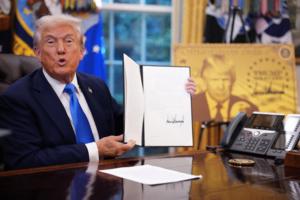
Companies stare down $100,000 fee with new H-1B visa rules
The Trump administration’s overhaul of the U.S. visa system for highly skilled immigrants is about to get its first major test.
The annual lottery for H-1Bs, the most popular visa for white-collar professionals looking to build a career in the U.S., gets underway with new rules this month. For the first time, successful sponsors for ...Read more
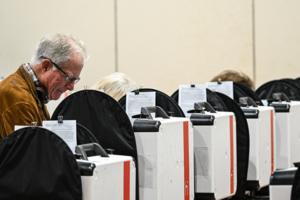
Blue states push to ban ICE at the polls amid federal voter intimidation fears
Several Democratic states are moving to bar federal immigration agents from being near polling places and other election sites, amid persistent worries that President Donald Trump will use federal law enforcement or the military to disrupt the midterm elections.
Measures to restrict federal agents from operating at or near election-related ...Read more

Trump insists he must play role in picking new Iran leader as war rages on
President Donald Trump on Thursday insisted he must personally play a role in picking a new leader of Iran as the war against Tehran raged on with no end in sight.
Trump compared the selection of a new leader in Tehran to the U.S. military action in Venezuela that replaced President Nicolas Maduro with his onetime lieutenant Delcy Rodriguez.
�...Read more
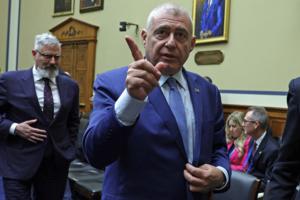
Lev Parnas launches bid for Florida's 27th Congressional District
MIAMI — Lev Parnas, a key figure in President Donald Trump’s first impeachment, announced Wednesday that he is campaigning for the Miami congressional seat held by Republican U.S. Rep. María Elvira Salazar.
During a livestream, Parnas, 54, said he was running for office because he knows Trump’s system from the inside. He helped build ...Read more

Editorial: Nuke diplomacy a dud, now's the time for action
“Even before taking office, I made clear that Iran would not be allowed to acquire a nuclear weapon on my watch.”
Former President Barack Obama said that in 2015. A little over a decade later, it’s apparent that they gave him little heed.
When U.S. Special Envoy Steve Witkoff and President Donald Trump’s son-in-law Jared Kushner ...Read more

Editorial: Standing firm: Despite reversal, DOJ is losing on law firms push
The Trump administration can’t even retreat from its unconstitutional attacks on law firms with any sense of dignity.
After months of unsuccessfully arguing for Donald Trump’s farcical executive orders attempting to punish prominent law firms that had worked with his perceived enemies, the Justice Department had apparently seen the light ...Read more
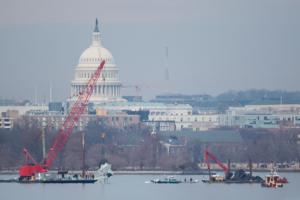
Editorial: Congress must act on air safety
One of the great conveniences of living in Central Maryland is the abundance of air travel options. We may not be home to a top-10 airport, but, collectively, BWI Marshall, Dulles International and Ronald Reagan National average more than 900 departures per day, or roughly the same as Hartsfield-Jackson Atlanta International, the nation’s ...Read more

Trump endorses Alme for Montana Senate as Daines steps aside
President Donald Trump has endorsed U.S. Attorney Kurt Alme to run as the Republican contender for a Montana Senate seat, now that the incumbent, Steve Daines, is not running for reelection.
“Steve’s Term is up, and he has decided to leave the Senate and, ‘pass the torch’ to Kurt Alme, my TRUMP 45 and TRUMP 47 U.S. Attorney,” the ...Read more
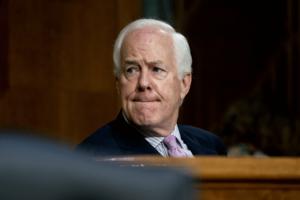
Trump says Texas Republican battle must end for Senate win
Three Texas Republicans fought a bruising primary race to claim a US Senate seat, only to see Tuesday’s election force two of them — Senator John Cornyn and Attorney General Ken Paxton — into a costly runoff.
Now President Donald Trump is vowing to put an end to it.
On Wednesday, Trump acknowledged the damage a drawn-out primary battle...Read more

House Democrats grill IRS chief over data-sharing concerns
WASHINGTON — House Ways and Means Democrats pressed Frank Bisignano, who leads both the IRS and Social Security Administration, on data access concerns at both agencies in his first testimony on Capitol Hill since he took on his newly created role at the tax agency.
Throughout the nearly five-hour hearing Wednesday, Democrats frequently ...Read more
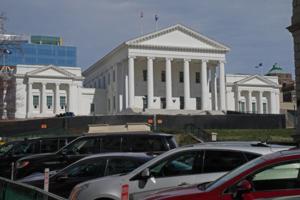
Lawsuit seeks to block Virginia's abortion referendum from November ballot
NORFOLK, Va. — Republicans unsuccessfully sought to block a redistricting referendum from going before Virginia voters next month by challenging the process used to get the issue on the ballot. Now, a conservative legal group is running a similar play in an attempt to block a constitutional amendment that would preserve abortion rights from ...Read more
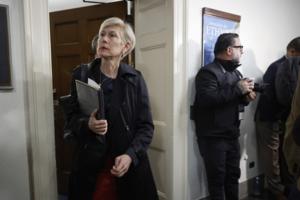
NC Rep. Deborah Ross echoes Tillis calling for Noem's resignation over Helene relief
WASHINGTON — A North Carolina Republican and Democrat seemingly joined forces this week against Homeland Security Secretary Kristi Noem, saying she failed to provide Helene relief funds to Western North Carolina communities fast enough and calling for her resignation.
Congress earmarked $29 billion in recovery funds to the states affected by ...Read more

NY congressional candidate Brad Lander calls for expanding Supreme Court and term limits
NEW YORK — Democratic congressional candidate Brad Lander is calling for the Supreme Court to be expanded and term limits for justices, saying the conservative judges “are putting partisan politics ahead of impartial justice.”
Lander, who is vying to unseat Rep. Dan Goldman, derided what he called the “MAGA Supreme Court” for its ...Read more

Lawmakers criticize DHS Secretary Kristi Noem over delayed FEMA decisions
WASHINGTON — Members of the House Judiciary Committee used an oversight hearing Wednesday to challenge Homeland Security Secretary Kristi Noem over delays in dispersing Federal Emergency Management Agency funds, as well as the Trump administration’s plans to overhaul the disaster relief agency.
The questions focused on Noem’s policy ...Read more
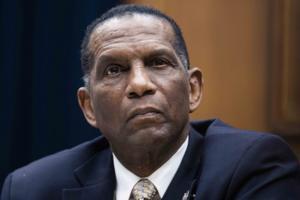
Utah Republican Burgess Owens announces retirement
WASHINGTON — Rep. Burgess Owens, R-Utah, announced on Wednesday he would not seek reelection amid redistricting woes in the Beehive State.
“After careful reflection, I have concluded that to continue this work, the next chapter of my mission would be best pursued outside elected office,” Owens posted to social media on Wednesday evening. ...Read more

House squashes effort to force release of Ethics Committee files
WASHINGTON — Lawmakers on Wednesday sidestepped an effort by Rep. Nancy Mace aimed at publicly releasing documents related to sexual harassment allegations investigated by the House Ethics Committee.
The South Carolina Republican had moved to force a vote on the floor, but instead the House opted to refer her resolution to the Ethics ...Read more
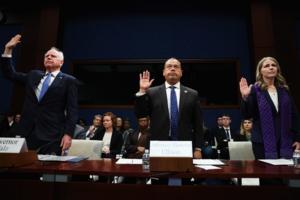
Immigration crackdown hurt Minnesota fraud fight, Walz, Ellison tell House panel
Testifying before a U.S. House oversight panel Wednesday, Minnesota Gov. Tim Walz and Attorney General Keith Ellison clashed with Republican members of Congress over their handling of significant fraud in state government programs funded by the federal government.
Walz told the Republican-led House Oversight and Government Reform Committee that...Read more

Tillis expands block over unanswered questions to DHS
WASHINGTON — Sen. Thom Tillis said Tuesday he would put a hold on floor action to confirm groups of presidential nominees and might soon expand that to legislation and nominees at four committees, part of his demand for Department of Homeland Security data on immigration enforcement in his state.
At a DHS oversight hearing at the Senate ...Read more
Popular Stories
- Colorado Democrats blast Gov. Jared Polis as he again hints at intervening in Tina Peters' prison sentence
- Bobby Pulido scores Texas congressional primary win, secures spot in November election
- New Democrat's entrance in race sets up Aspen-centric primary in U.S. Rep. Jeff Hurd's district
- House Democrats grill IRS chief over data-sharing concerns
- Trump endorses Alme for Montana Senate as Daines steps aside




















































